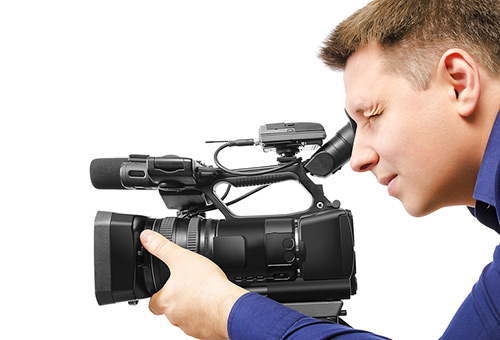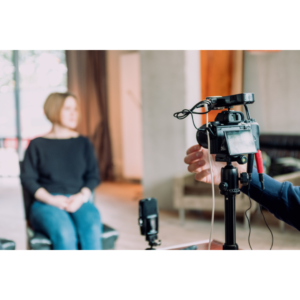The Role of Legal Videography in Depositions and Tests
Lawful videography has become a vital tool in both depositions and trials, giving a complex technique to documenting witness testaments. By recording not only the spoken word but additionally the nuances of non-verbal communication, this tool improves the reputation of statements and preserves crucial evidence for future process (legal videography). As attorneys significantly acknowledge its worth, it triggers a deeper exam of exactly how these visual documents can influence juror assumptions and trial end results. What ramifications might these developments hold for the future of lawful practice?

Significance of Lawful Videography
Legal videography plays a crucial role in the paperwork and discussion of depositions and trials. This specific area combines technical abilities with legal understanding to develop a dependable document of process that can considerably affect instance end results. The visual element of lawful videography boosts the understanding of witness testimony, enabling jurors and judges to observe not only the talked words yet also the disposition, feelings, and body language of the witnesses.
Additionally, lawful videography gives an unbiased account of occasions, reducing the capacity for misconception that can happen with composed transcripts alone. This visual documents functions as a vital tool throughout test discussions, assisting in a clearer and more influential story for both complainants and accuseds. The capacity to replay video clip sections during court proceedings makes it possible for legal groups to highlight essential factors, strengthening their debates properly.
The value of legal videography expands beyond the court room; it likewise plays a vital duty in protecting evidence for future referral, whether for charms or more lawsuit. Therefore, its integration right into the legal procedure is vital for ensuring a reasonable and accurate depiction of the facts, eventually adding to the quest of justice.

Process of Legal Videography
While capturing the nuances of depositions and tests, the procedure of lawful videography includes a number of critical steps that guarantee high-grade, accurate recordings. Initially, an expert lawful videographer prepares by reviewing the case materials and comprehending the certain needs of the deposition or test. This preparation includes familiarizing themselves with the participants and the context, which aids in capturing important information.
On the day of the recording, the videographer establishes the needed tools, which typically includes high-definition cameras, microphones, and proper lighting. Guaranteeing optimal angles and sound quality is crucial, as it straight influences the performance of the recording. The videographer interacts with attorneys and participants to establish protocols, ensuring that every person recognizes the recording process.
During the deposition or test, the videographer diligently tapes the procedures, paying attention to both verbal and non-verbal cues. This consists of catching the behavior and reactions of witnesses and lawyers. After the session wraps up, the videographer might edit the footage for quality and conformity with legal criteria, creating an end product that precisely shows the proceedings for future referral and use in legal contexts.
Advantages in Depositions
The incorporation of videography in depositions supplies many advantages that boost the general process of collecting evidence. One main benefit is the capacity to capture witness testaments with visual and acoustic fidelity, giving a much more exact representation of the witness's demeanor, tone, and body movement. This multidimensional approach enables attorneys and juries to examine trustworthiness better than traditional written records alone.
Additionally, videographed depositions function as a powerful device for protecting testimony. Should a witness become unavailable for test, their recorded deposition can be played in court, making sure that their proof remains obtainable and relevant. This element substantially reduces the danger of shedding crucial info that might influence case results.

Last but not least, videography boosts the general expertise of the deposition procedure, instilling self-confidence in customers pertaining to the thoroughness of their lawful depiction (legal videography). By leveraging innovation, lawyers can considerably improve the efficiency of depositions
Effect On Trials
In numerous tests, the assimilation of videography can substantially influence the presentation of proof and the court's perception. Legal videography captures witness testaments and essential proof in a dynamic format, permitting jurors to engage with the material on numerous levels. This visual component boosts the storytelling aspect of a test, offering context and psychological vibration that traditional text-based proof may do not have.
Moreover, video clip recordings can serve as effective tools for impeachment throughout interrogation. When discrepancies arise in between a witness's prior declarations and their court room statement, video evidence supplies an unbiased reference that can guide jurors' viewpoints. This immediacy and quality can bolster the reliability of an event's narrative while simultaneously weakening opposing debates.

Future Trends in Legal Videography
As we look toward the future of legal videography, a number of emerging patterns guarantee to reshape its role within the courtroom. One significant trend is the integration of expert system (AI) in video see this site clip analysis and editing. AI can streamline the procedure of recognizing crucial minutes in taped depositions, allowing lawyers to swiftly access appropriate content, thereby boosting effectiveness in case prep work.
Furthermore, the rise of digital fact (VR) and augmented fact (AR) technologies is anticipated to transform how jurors experience proof. legal videography. By submersing jurors in a simulated environment, these modern technologies can supply a much more profound understanding of intricate situations, resulting in more educated deliberations
Moreover, the boosting demand for remote depositions, accelerated by the COVID-19 pandemic, will likely proceed. Legal videographers will certainly need to adjust to brand-new software and systems to guarantee premium recordings in digital setups.
Lastly, the expanding emphasis on information safety and security will demand stricter protocols for keeping and sharing video clip evidence. As the lawful landscape evolves, legal videographers should stay abreast of these fads to keep their significance and effectiveness in the judicial process.
Final Thought
In summary, lawful videography discover here offers an essential feature in the judicial procedure, enhancing the integrity of depositions and trials. As innovation proceeds to advance, lawful videography is positioned to further transform its duty within the legal landscape.
Comments on “Tailored Legal Videography for Attorneys.”